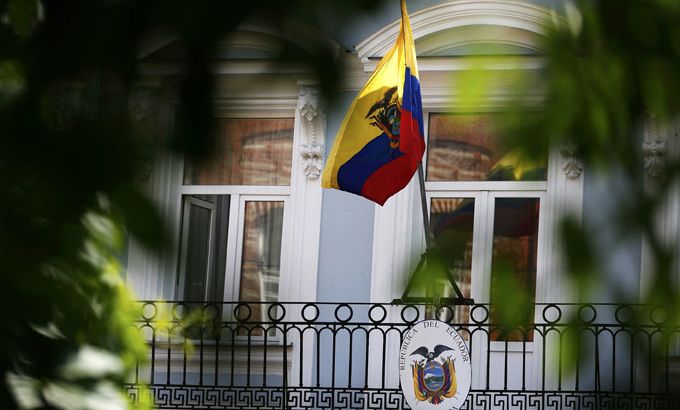
Snowden’s great escape
As the US tries to detain the whistleblower, we look at the diplomatic repercussions of tracking down Edward Snowden.
The whereabouts of whistleblower Edward Snowden remain unknown. The United States believe that he is in Russia and White House officials are demanding that the former Central Intelligence Agency (CIA) employee be handed over.
Frankly, I don't think that Russia is even in the position to transfer Snowden to the US.
The 30-year-old intelligence analyst first sought refuge in Hong Kong and when his departure from there was not blocked, the White House warned of an “unquestionably” negative impact on US-Chinese relations.
The White House believes that the countries said to be on Snowden’s shortlist of destinations undermine his claim to be a champion of transparency, freedom of the press and civil rights.
Snowden has been charged by the US of espionage and spying after revealing to Western newspapers how the US National Security Agency (NSA) spies on the internet and phone activities of millions of people. The programme, named PRISM, was authorised by a secret court.
In a letter sent to Sergey Kislyak, the Russian ambassador to Washington, Republican senator Lindsey Graham urged Moscow to ‘apprehend’ and ‘turn over’ Snowden to the US ‘immediately’ if he is still in the country, warning: “The Snowden case is an important test of the ‘reset’ in relations between our two countries. Mr Snowden’s own statements have made clear his guilt. If our two nations are to have a constructive relationship moving forward, Russian cooperation in this matter is essential.”
On Sunday, New York senator Charles Schumer told reporters: “It seems to me that Mr Putin is almost eager to stick a finger in the eye of the United States. In so many different areas he does not cooperate. Very few are the areas in which he does cooperate these days and I think this action, Putin allowing Snowden to land in Russia and then go somewhere else, is going to have serious consequences for US-Russian relationship.”
So, as Washington tries to detain the NSA whistleblower, strains emerge with Russia and China. What are the diplomatic repercussions of tracking down Edward Snowden?
Inside Story Americas, with presenter Shihab Rattansi, is joined by guests: Charles Kupchan, a former US National Security Council official and a professor of international affairs at Georgetown University; Edward Lozansky, the founder and president of the American University in Moscow; and Andrew Weiss, the vice president for studies at the Carnegie Endowment for International Peace.
|
“Russians and Chinese often find that the US is on its white horse … and all of a sudden this information comes out that the US is engaging in surveillance … so there is a sense that the US is getting its just deserts here. And so I think that’s one of the reasons that even though Russia and China do not want have a falling out with the United States over Snowden, they see this as an opportunity to push back against what they see as overzealous democracy promotion from Washington.” – Charles Kupchan, a former US National Security Council official |
Listening to the voice of Brazil
In Brazil, the largest protests since the end of the country’s military dictatorship have shown few signs of abating. Originally a response to a six percent hike in bus fares, the protests have drawn more than one million people to the streets over the past two weeks.
Brazilian President Dilma Rousseff has held meetings with protesters on Monday. Some of the fare increases have been reversed, however members of what is known as the Free Pass Movement are demanding free and accessible public transportation for all.
Many Brazilians say that bus fares are merely the spark that ignited a larger debate over healthcare, education and public services in a country that is among the most imbalanced in the world.
One of their main complaints is that the government’s massive spending on preparations for the 2014 World Cup are expected to be close to the country’s entire education budget.
Despite pledges of reform by President Rousseff, protesters say they will continue to march. But are their concerns really being properly addressed?
Inside Story Americas discusses with Natalia Viana, the director of Publica, a non-profit investigative journalism organisation that has been reporting on World Cup preparations.
| “One of the things that is very interesting in the protest is that in the series where there is Confederation Cup games happening always the protesters try to break the blockade of policemen.”
– Natalia Viana, the director of Publica |